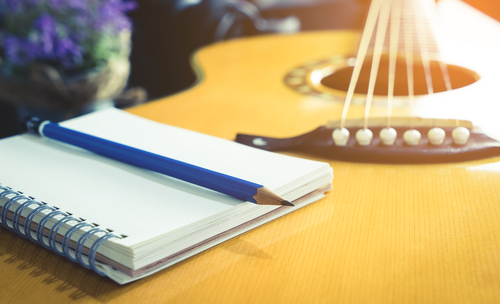HOMENEWS & INSIGHTS
Where does music fit in Intellectual property (IP)?
Music plays a significant role in many sectors from TV, film, entertainment, technology, video games, fashion, and consumer goods. These industries fuel economic growth and are protected by intellectual property (IP) laws. But when is comes to protecting music specifically, where does it fall within the IP framework?
Understanding the types of IP rights is key to knowing how music is protected.
Registered IP rights.
These need to be registered with an official organisation that manages IP rights. In the UK this is the UK Intellectual Property Office (UKIPO) and there are equivalent organisations in other countries. Registered IP rights only offer protection once they have been registered, and once they are, the owner of the rights can stop others from using the relevant work without permission. Examples include trade marks (which protect brand names and logos) patents (which protect processes and inventions) and registered designs (which protect shapes of goods).
Unregistered IP rights
These rights do not need to be registered and arise automatically and are naturally owned by the creator (unless otherwise determined). Copyright is an example of IP which does not need to be registered. Copyright protects sound recordings, songs, wording such as lyrics, images, photographs and other creative works.
Music naturally falls under copyright law, and copyright protects the following types of works:
- original literary, dramatic, musical and artistic work, including illustration and photography;
- original non-literary written work, such as software, web content and databases;
- sound and music recordings;
- film and television recordings;
- broadcasts; and
- the layout of published editions of written, dramatic and musical works.
The creator of a copyright work is referred to as the author. Copyright typically lasts for the author’s lifetime plus an additional 70 years (depending on the particular category of copyright work).
Where a copyright work is going to be created or used, it is important to establish who the copyright owner is, and to ensure that the relevant permissions have been given, in order to avoid confusion or conflict further down the line.
Ownership of copyright in a work is vital as this will not only give the owner the right to exploit the work for a commercial gain but it will also allow the owner to prevent others from:
- copying the work;
- distributing copies of it, whether free of charge or for sale;
- renting or lending copies of the work;
- performing, showing or playing the work in public;
- making an adaptation of the work; and
- sharing it via the internet.
Exceptions to Copyright Ownership
Employment
Where a work is made by an employee in the course of their employment, the employer (not the author) will be the first owner of copyright in the work, unless agreed otherwise. The critical elements here are “employee” and work made “in the course of employment”.
Commissioned Work
In the case of a work commissioned from a third party, the contractor will own the copyright even though the commissioner of the work has paid for the work to be created, unless agreed otherwise. It is therefore essential to deal with the position on copyright ownership clearly, and ideally up front, in order to avoid potential problems over ownership.
How do you protect your copyright if you cannot register it?
Given copyright arises automatically, it is good practice to keep records and evidence of any materials or works created and when (an ‘audit’ trail), which may be needed to establish the existence and ownership of copyright in infringement proceedings. A copyright owner is advised to mark copyright material when it is published with the international copyright symbol © followed by the name of the copyright owner and year of publication (e.g. © [OWNER] [YEAR]). While this “copyright notice” is not a necessary requirement in the UK, it may assist a copyright owner in the event of infringement proceedings. It will also be necessary if a copyright owner wishes to enforce their copyright in certain foreign countries.
When is copyright infringed?
Copyright provides the owner with the exclusive right to copy, issue copies, rent or lend, perform, show, play, communicate or adapt the copyright work.
Copyright is infringed by anyone who carries out any of the copyright owner’s exclusive rights without the permission of the copyright owner, unless an exception to copyright applies.
Infringement can be in relation to the whole or a substantial part of the work. A ‘substantial’ part of the work has been copied if the infringer has taken the “author’s intellectual creation”.
In addition, an individual or corporate entity may commit a secondary infringement of copyright if, among other things, they import into the UK, possess, sell or distribute an article which they know or have reason to believe is an infringing copy.
Hopefully the above gives you an overview of how music falls into copyright, what copyright is generally and how you can protect it even though it is not a registrable form of IP.
If you’re unsure about your rights or need further guidance, our team of IP experts is here to help. Reach out to one of our Intellectual Property experts today to protect what’s yours.
Share article
Our offices
Contact Us
5 Poole Road
Bournemouth
Dorset
BH2 5QL
Tel 01202 377800
9 Poole Road
Bournemouth
Dorset
BH2 5QR
01202 377800


